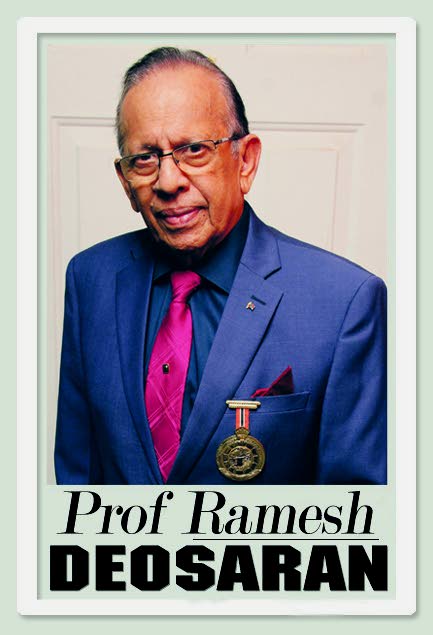Cruel uncertainty of politics

The massive, heartbroken crowd patiently waited for Kamala Harris’s concession speech on November 6. They were silently experiencing the cruel uncertainty of politics.
After the early euphoria, historic fundraising and muti-ethnic electoral promises over her celebrated nomination by the Democratic party, the 60-year-old Harris was predicted to be a “sure winner” over 78-year-old Republican presidential candidate Donald Trump.
She was seen as representing the “new America.” But even celebrities – Taylor Swift, Beyonce, Lady Gaga, Oprah and so many other influencers – failed to stop Trump. Trump had billionaire Elon Musk.
On November 6, at Howard University, Harris' concession speech was gracious but sombre, promising Trump “a peaceful transfer of power” and advising her dejected crowd to maintain “the optimism of truth, faith and service.” Maintain loyalty, she said, “not to a person or party but to the constitution."
A lesson for us here.
“The loss may hurt,” she added, “but don’t ever give up…I concede the election but I do not concede the fight that fuelled this campaign.”
President Joe Biden said: “A defeat does not mean we are defeated. A setback is inevitable but giving up is unforgivable.” Contrary to Trump’s claim, Biden said, “We are leaving the strongest economy in the world.”
The Democrats are down but not out.
Meanwhile, Trump gleefully thanked his joyous supporters while promising America “better days” and then settled down to appoint his team for January. They were experiencing the ecstatic pleasures of victory.
It seems a new world faces America as Trump leans towards fossil fuel, away from climate controls, towards stiff tariffs on imports, toughened immigration enforcement, abortion bans, and a reluctance for America “to fight wars in distant lands.” And the crowds applauded.
Our Opposition Leader Kamla Persad-Bissessar, congratulating Trump, could not resist saying: “It is widely held that leaders who return to service carry not only the experience of their past term but also a renewed commitment to their country’s future with fresh energy and clear purpose.” Will she return?
With this billion-dollar-driven US election, the seductive opinion polls got it wrong. The media, using various polling agencies, gave a “Kamala winning” impression, with Trump as a struggling underdog, until his crowds began to grow. In the end Trump’s “old America” won. The polls' “pro-Kamala” and “neck and neck” predictions were kicked aside by the actual electoral college votes on November 5, similar to what happened in 2020, in our superficial, first-past-the-post general election, and 2021 Tobago House of Assembly elections. The pollsters had it wrong.
Latest estimates for the Trump vs Harris contest: With a victory threshold set at 270 electoral college votes, Harris got 226 electoral college votes (68,097,077 popular votes, 47.6 per cent); Trump got a whopping 295 (72,753,330, 50.9 per cent). So Trump beat her with both the electoral college votes and the natural votes. Ms Harris could have gained some credibility if she had won the popular vote.
In the 2016 elections, Democratic presidential candidate, Hillary Clinton, got more popular votes (natural votes) than Trump, but lost with the electoral college votes. (Clinton: 227 electoral votes, with 65,853,514 votes: 48.2 per cent/Trump 304 electoral votes with 62,984,828 popular votes: 46.1 per cent).
The history behind this electoral vote system has a rather upsetting taste. In its early days it smacked of racism. Now it isn’t who wins or loses. It is the most sacred democratic principle that bothers – each citizen’s fair and free vote. Each person’s vote, the natural vote, must count, not ignored or sidelined by an unnatural construct like the confusing, complicated college electoral votes or the inherited British invention of first-past-the-post.
There is a big story here where the natural one-man one-vote is subverted by an artificial first-past-the post construction in our country. And I have always had a concern with that. It is not truly democratic.
Neither is the US college electoral vote. I will soon return to it.
Many attempts have been made in the US to replace the electoral college vote system with the natural votes. Our electoral system here suffers a similar fate, where the artificial supersedes the natural vote, which makes voting for many people here and in the US “a waste of time.”
Meanwhile, the bruised Democrats wish to ask: Will Harris continue the fight?
And the world waits to see how Trump will deal with the Israel-Gaza, Russia-Ukraine and Venezuela situations.

Comments
"Cruel uncertainty of politics"